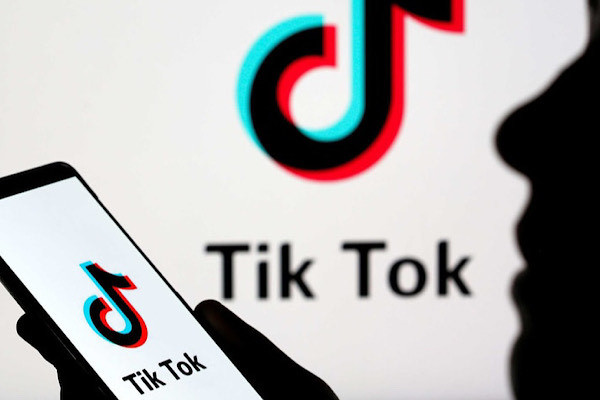The negative effects of TikTok on the brain
Distracting
“I have not used any social networking platform as often as TikTok even though I only found out about this application last year,” shared Priscilla Villa in Central Falls (USA).
Aidan Lablanc, another user, admits to checking apps at least 10 times a day.
TikTok’s “magical” recommendation algorithm makes viewers unable to stop watching the content, it even has the ability to “train” the user’s brain and cause distraction.
A study based on Douyin (Chinese version of TikTok), looked at how short videos affect the brains of college students in China.
The researchers looked at how the brain responds to generic and personalized videos. The results show that videos that match viewers’ interests can activate the brain’s reward system center.

The reward system plays an extremely important role in shaping emotions and directing human actions, and functions to create feelings of pleasure and desire.
“We’re pretty much influenced by these apps to modify our behavior for instant gratification,” said Dr Justin Shleifer, a child and adolescent psychiatrist at Bradley Hospital.
While instant gratification sounds great, it can affect the brain hours after closing the app.
“I worry that kids will have a harder time reading if they’re used to getting instant gratification like doing TikTok scrolling,” says Shleifer.
The problem may go beyond reading books. In other situations that require patience, it can be difficult for children to focus on anything that doesn’t give immediate results.
Addictive algorithm
According to a study by the Wall Street Journal, TikTok uses algorithms to provide feeds to users. Videos are personalized based on what the user likes and how long similar videos are watched.
The longer a user watches a particular creator or video genre, the more accurately the algorithm recommends similar videos to the homepage.
Many users also admitted that the algorithm got them stuck, recommending content that was almost 100% matching their interests.
Some researchers are concerned about the algorithm’s potential impact on the mental health of adolescents. For example, if a child is watching a video about how to lose weight or another topic that could be harmful to their mental health, it is worrisome that the app will continue to recommend the same videos.
In March, the attorneys general of many states in the US opened an investigation into TikTok, related to the impact of the platform on the mental and physical health of children. The investigation focused on clarifying the methods the app was using to keep users scrolling for long periods of time and increase engagement.
Before that investigation began, TikTok announced it was looking for a new way to diversify videos by using a recommendation system that included content that might be outside of user preferences.
Another question arises whether someone can be addicted to social media. An MRI scanner from China has found that the addicted part of the brain is activated when watching videos that match their interests.
Mr. Schleifer doesn’t believe there is a direct risk of addiction to apps like TikTok or Instagram, but says the more kids get used to instant rewards, the harder it is for them to take their eyes off their phone screens and make suggestions. healthy choices.
“Rather than fighting social media, parents should limit their children’s screen time and educate them on how to interact with the platform,” Schleifer said.
A TikTok spokesperson said the company has plans in place to protect children. In addition to allowing parents to control screen time via the Family Pairing feature, TikTok minimizes push notifications in the evening and proactively displays reminders on the homepage to pause the application.
at Blogtuan.info – Source: cafebiz.vn – Read the original article here



